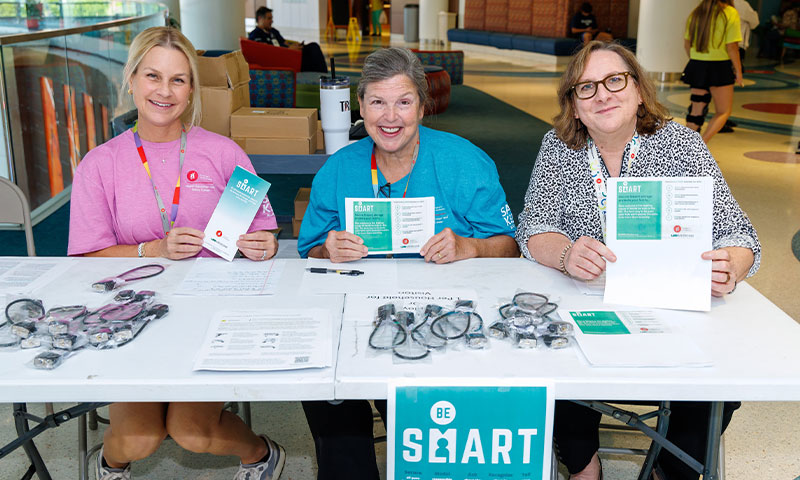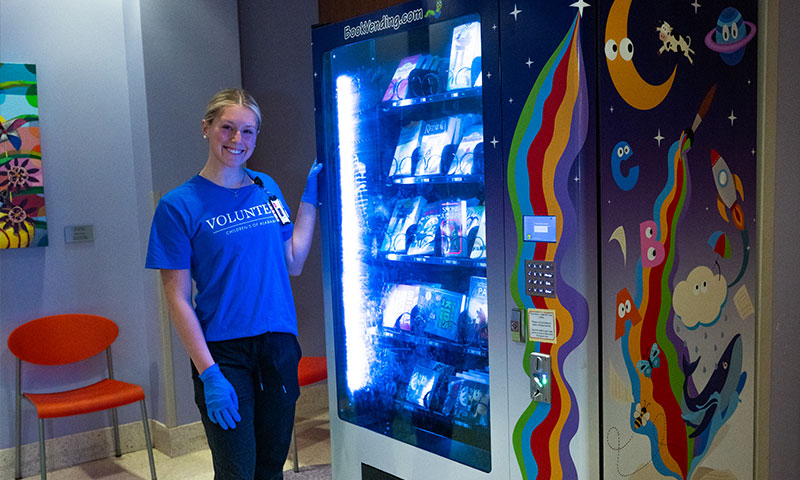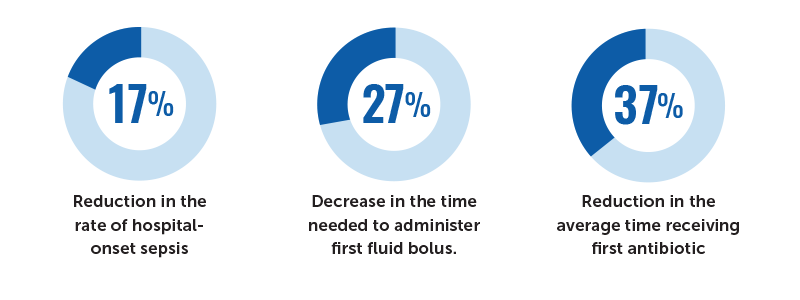


This committee, formed in 2023, made significant progress in its first full year, distributing more than 1,000 gun locks to employees, patients and family members. They also provided Be SMART information to employees and patients, and pushed safety strategies on social channels and in patient rooms. To learn more about best practices, they visited and met virtually with other peer hospitals.
The group was created in response to a dramatic increase in firearm-related injuries both here and around the country. Nursing administration of the Children’s Emergency Department, at the direction of Children’s chief nursing officer and other executive leadership, assembled the committee to organize existing efforts and bring about new ideas. The team is made up of emergency department leadership, nurses and physicians, directors of integrative care, physicians in primary care, critical care and rehabilitation medicine, Children’s government relations staff, and strategic communications and marketing staff. The group’s focus is to provide education related to protecting kids from firearm injuries.

There is a growing need to provide mental health services for children and adolescents across the United States, but many face barriers to access and stigma. Physicians in the UAB Pediatric Primary Care Clinic (PCC) saw this need among their patients and determined that the best way to care for their patients was to provide these services as part of their primary care.
In January 2022, the PCC began providing access to a child psychologist two afternoons a week, and they saw the incredible impact this had on their patients and families. By the end of 2022, the clinic had seen 300 patients for mental health services. Due to the success of this integrated approach and the increase in demand, Margaret Canter, Ph.D., assistant professor in the Division of Academic General Pediatrics, increased her presence in the clinic and now sees patients one full day and two half days a week.
“The number one goal for embedding mental health services in the PCC was to increase access to mental health care treatment for the clinic’s patient population,” explained Canter. “There is still a lot of stigma associated with mental health illness, and having the services offered in a clinic with which the patients and their families are familiar can reduce systemic and structural barriers (e.g., cost, transportation, availability of providers) and make it that much easier for the families to follow through on treatment recommendations.”
By expanding prevention services and intervening early, the clinic can address some of the barriers for minority populations’ access to mental health services. There is a shortage of child psychologists in the Birmingham area, and of those child psychologists, even a smaller amount accept Medicaid. Through treatment in the PCC, patients may be seen in a more efficient manner and reduce the burden on the families to find someone that has availability, accepts their insurance and is at an easily accessible location.
In 2024, the PCC saw 436 patients for mental health services and continue to see the impact of this integrated approach to mental health care.
For more information, click here.

Trips to the emergency department can be difficult for pediatric patients, but a new addition at Children’s of Alabama is helping to ease their minds while also giving them a chance to learn.
In August 2024, Children’s installed a book vending machine in its Emergency Department. While in the waiting room, children can receive a token to get a book from the machine. It’s a joint effort between the child life and volunteer services teams, and it promotes literacy while giving kids an activity during their wait. Since installation, the hospital has provided more than 5,400 books to families.
“Reading to hospitalized children can have profound healing effects, both emotionally and psychologically,” said Kathy Monroe, M.D., director of the Children’s Emergency Department. “The book vending machine has been a hit with our families and provides an additional tool to help children cope with a stressful doctor’s visit. We are thrilled to be able to promote reading and help children be less frightened during their stay!”
Staff have heard many positive reviews about the experience, so far. Some families say it has helped their child pass the time; others say it’s taken the child’s mind off their injury or illness while they waited.

Pediatric sepsis is a significant global health issue, leading to considerable morbidity and mortality. Despite the challenges of caring for sepsis patients, Children’s of Alabama has made significant progress on sepsis outcomes over the last few years.
Since 2017, the hospital has improved in three areas: reducing the rate of hospital-onset sepsis cases from 1.24 to 1.03 per 1,000 (17% decrease), cutting the average time to administer the first fluid bolus from 52 minutes to 38 minutes (27% decrease) and driving down the average time to first antibiotic from 116 minutes to 73 minutes (37% decrease).
The success is attributable, in part, to Children’s use of the Improving Pediatric Sepsis Outcomes (IPSO) collaborative definitions to identify sepsis patients. These definitions emphasize the clinical decision to initiate sepsis treatment, focusing on five key process measures related to screening and Early Goal-Directed Therapy (EGDT) delivery to improve outcomes: sepsis screening, sepsis huddles, order set utilization, time to first fluid bolus and time to first antibiotic administration.
A multidisciplinary approach also plays a key role in Children’s success. The Children’s of Alabama Sepsis Coordinating Council, which oversees the hospital’s sepsis work, is a group of nurses, administrative leaders, performance improvement experts, information technologists, pharmacists and physicians who have led the charge on these improvement efforts.
Staff in the emergency department also have been vital. “They are the foundation of sepsis care at Children’s of Alabama,” said Amy Hobbs, director of quality and patient safety at Children’s said. “Our emergency department has demonstrated sustained excellence in sepsis care, particularly in antibiotic administration, for more than five years.”
Moving forward, the Sepsis Coordinating Council aims to continue improving outcomes with new strategies. Children’s completed its IPSO work in 2024 and will continue to maintain IPSO outcomes. But starting this year, the team will use definitions established through the release of the Phoenix Criteria. “There are opportunities to determine the future of sepsis care at Children’s of Alabama in the coming years,” Hobbs said. “We are currently exploring how we can best utilize this tool.”